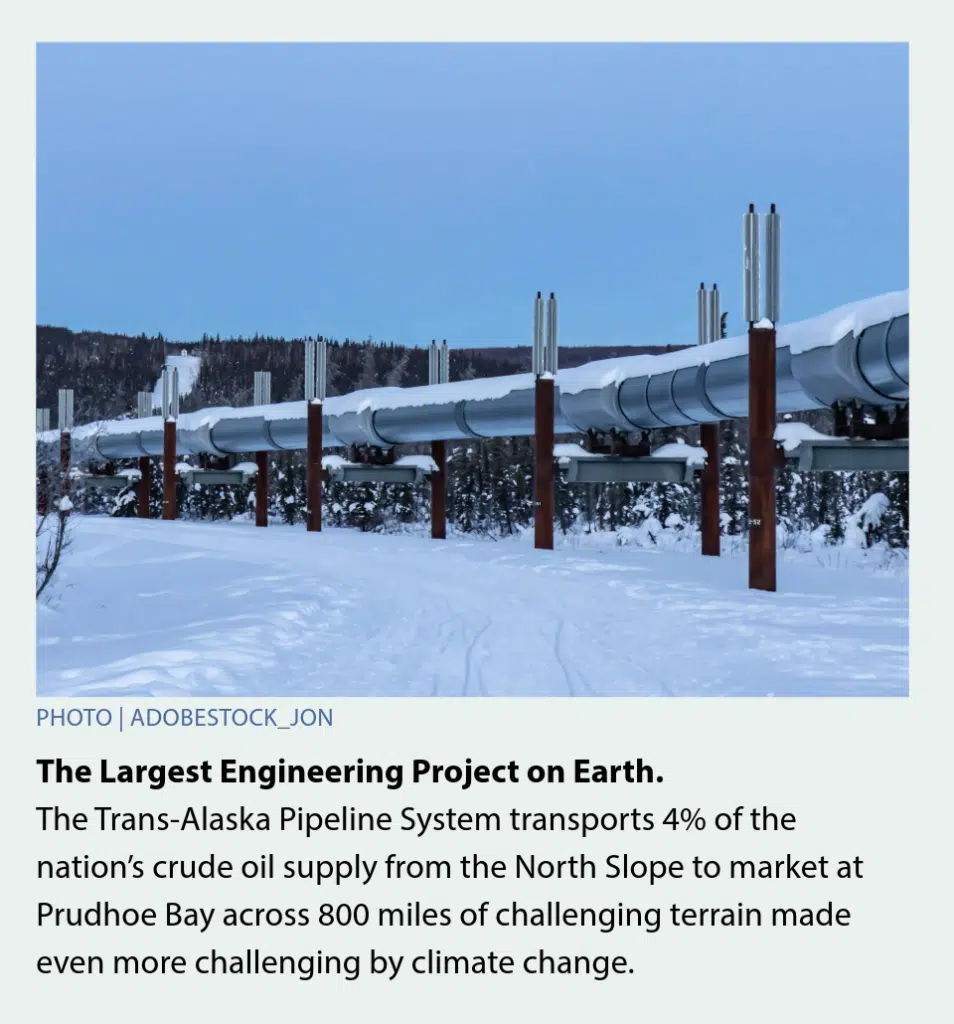Trans-Alaska Pipeline Climate Cluelessness
This commentary was originally published in the Winter 2024 edition of PEEReview.

The Trans-Alaska Pipeline System (TAPS) is a critical component of America’s fossil fuel infrastructure, yet in the last 20 years, the federal government has not analyzed the massive system’s impact on climate change or how climate change affects or will affect its costs, reliability, or ecological footprint. In its 45 years of operation, TAPS has undergone only two environmental assessments: the pre-construction Environmental Impact Statement (EIS) in 1972 and the Reauthorization EIS in 2002. A lot has changed since then.
In response to a PEER Freedom of Information Act request, the U.S. Bureau of Land Management (BLM), which oversees pipeline operation, was unable to identify a single planning document outlining potential steps to mitigate climate-related impacts over its projected lifetime. Nor was the agency “aware of any assessments concerning climate change” relating to increased maintenance costs or threats of spills or other breakdowns. Furthermore, BLM “has not discussed or estimated the climate impact of TAPS” either internally or “with the owner companies.”
“America’s climate planning apparently stops at the Canadian border,” remarked Rick Steiner, an ecologist, former University of Alaska-Fairbanks professor, and Chair of PEER’s Board of Directors, noting that TAPS is responsible for more than 8 billion tons of CO2 emissions. “Climate change is seriously impacting the safety and integrity of TAPS even as it significantly impacts global climate change.”
PEER is asking the White House Council on Environmental Quality to address this gaping hole in national climate planning. Meanwhile, we are collecting documents to show how the effects of climate change threaten to disrupt TAPS operation and multiply its maintenance costs.
